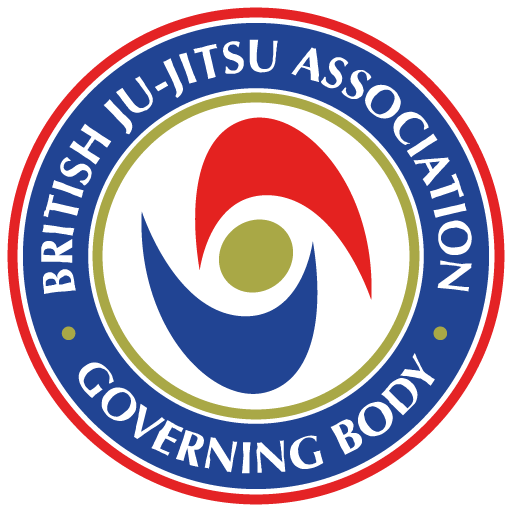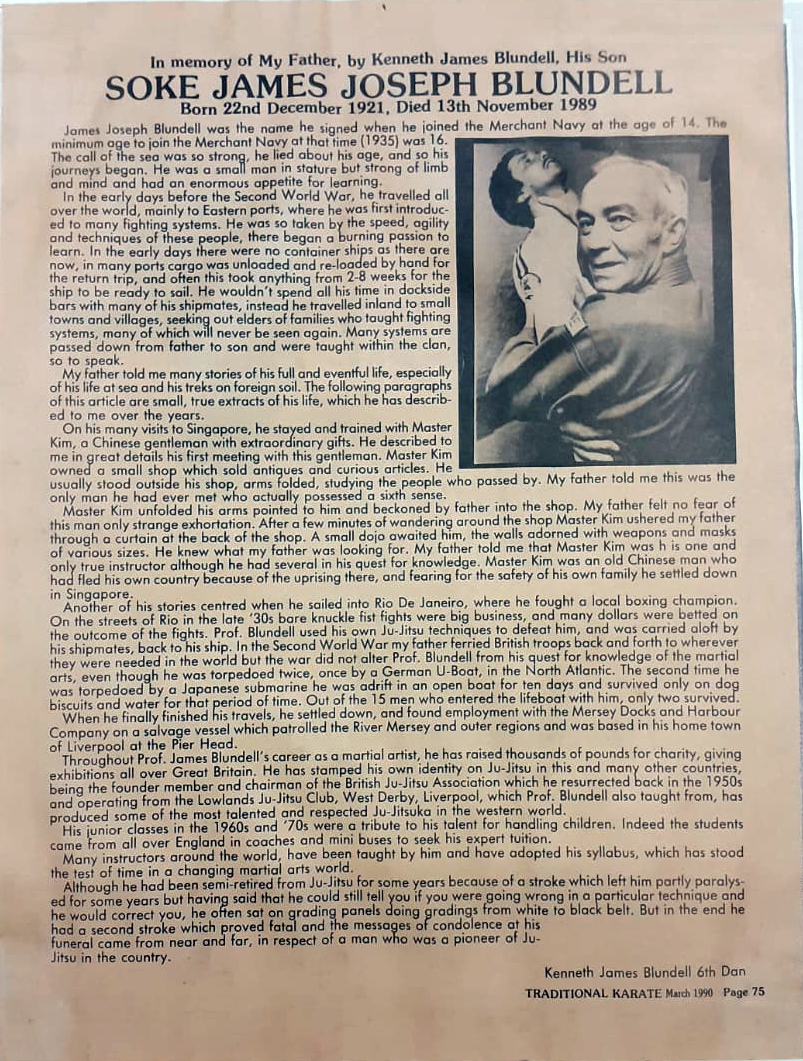Born 22nd December 1921-Died 13th November 1989 Doctor Professor Soke James Joseph Blundell 10th Dan was a pioneer of Ju-Jitsu in the UK. He resurrected the BJJA (then called the British Ju Jitsu Association) for the third time back in 1953 after it was formed twice, first before World War I then disbanded after the war. The second time again a few years before World War II, then again, the same fate happened a few years after the war.
In 1986 the BJJA was reconstituted by the government to become the British Ju-Jitsu Association governing body.
In 1954 the BJJA was given the recognition by the government of being the only Ju-Jitsu martial arts in this country, Karate was given second recognition in the late 1950s, then third was Judo in the early 1960s. Being the founding member and with the help of a few other passionate Ju-Jitsu founding members the BJJA was formed, with Soke Blundell made chairman of the board, a position he held until the early 1980s.
Soke Blundell resurrected Ju Jitsu in the early 1950’s. Prior to this JuJitsu was being practiced by the Suffragette’s and women’s movements to learn self defence.
Edith Garrud was a suffragette and jiu-jitsu specialist who taught the suffragettes to defend themselves against police brutality as they fought for the right to vote. Brought up in Islington she had a tough childhood and learned early how to defend herself. Some of the Older Ju jitsu exponents had moved towards the Sport of Judo.
He was the first person to introduce a proper belt system to develop training and a grading structure from white belt to black belt and beyond, for the students to see their progression and also a syllabus structure from beginner to black belt to learn from easy techniques to begin with and advancing to more technical and deadlier moves as you progress through the belts.
The Grading structure enabled students of all ages and gender including anyone with disabilities to take part and achieve personal development and goals which empowered students preparing them for life challenges.
This system has been adopted and adapted all over the world thanks to him and all the students he has taught with his knowledge and system have gone on to use the same format in their Federations, Associations, Academies and affiliations in their schools, clubs and throughout the world.
Soke Blundell was born in Liverpool and worked to build the BJJA from his dojo in West Derby called the Lowlands. The Lowlands is a Community Centre used for the residents of West Derby and remains so to this day. He acquired it in 1951 and it is still there as a centre of Excellence in the basement teaching Ju-Jitsu self-defence today.
Soke Blundell had four children with his wife, Josephine, two unfortunately passed away at an early age, but his remaining two children Kenneth and Susan went on to learn Ju-Jitsu and achieve their black belts. Susan later left Liverpool and went to live in Wales with her husband and son and would later open their own Ju-Jitsu clubs. These clubs although run by different groups in Wales are still a part of the BJJAGB. His son Kenneth has carried on his journey in Ju-Jitsu from his father’s dojo and taken over the running of the Lowlands Ju-Jitsu club in
Liverpool. He is also an executive member of the BJJAGB.
Later Soke Blundell had a stroke which left him paralysed in his left side but that did not deter him from his passion for Ju-Jitsu, he would still come to the club and coach from his wheelchair at the side of the mat giving advice. Far from being sidelined he regained new inspiration and developed techniques for other disabled people defending themselves from a Seated position. He would also sit on a grading panel examining students taking their grading, juniors, or seniors it did not matter to him as he saw all of them as the future coaches of the BJJAGB.
In November 1989 Soke Blundell had another stroke, which proved fatal and that ended the life of a man who was a pioneer in the history and the development of Ju-Jitsu in this country. His funeral was lined with so many mourners who attended his funeral to say goodbye to a man who had done so much for the students who loved to practice the art of JuJitsu and the cards and well wishes from the sensei and students who knew him came from all over the world.

